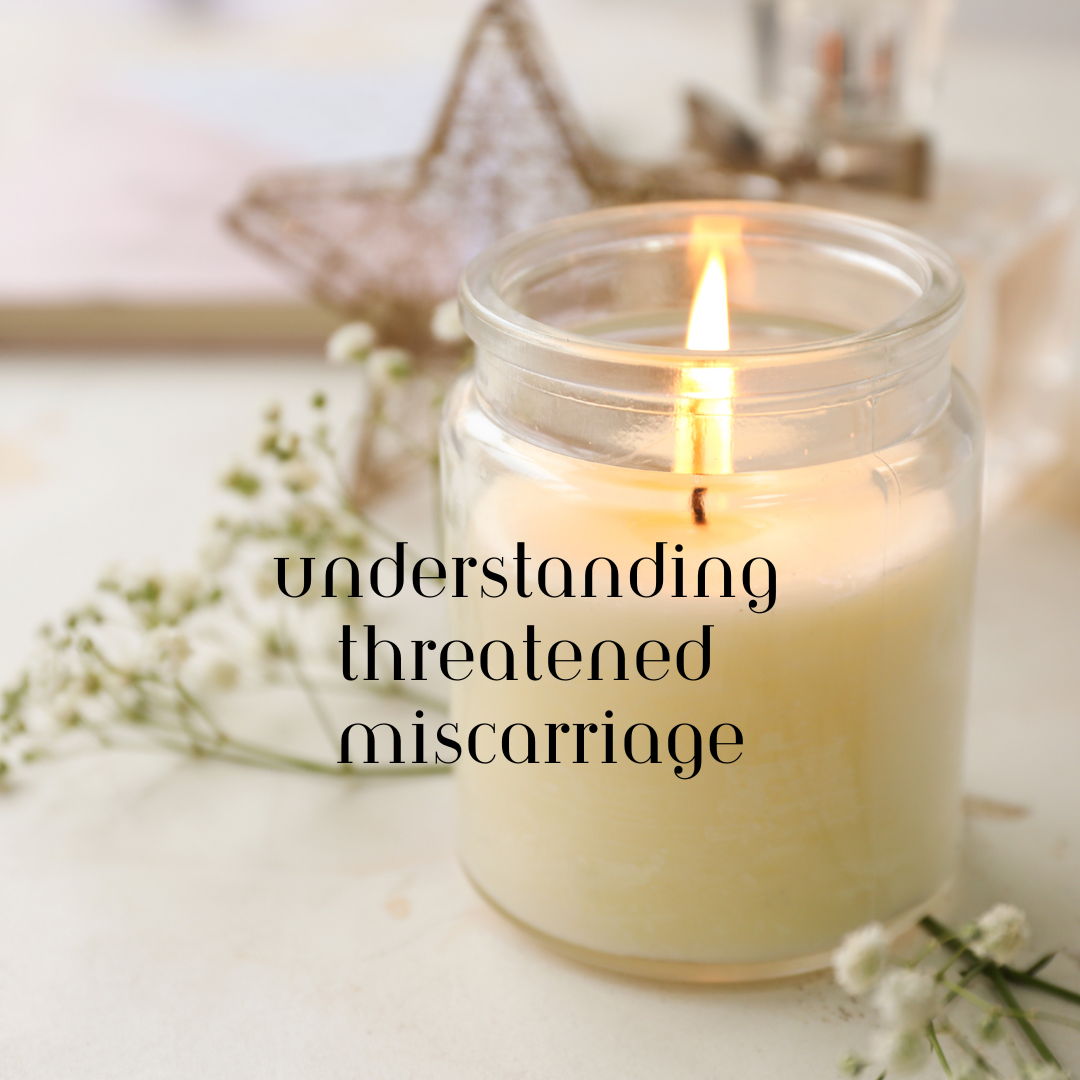Understanding a Threatened Miscarriage: What It Means for You?
Dear Mama,
First, I want you to take a deep breath and know that you are not alone. Right now, you might be feeling scared, confused, and overwhelmed — and that’s completely natural. If you’ve been told you’re experiencing a threatened miscarriage, it can sound very alarming. I’m here to help you understand what it means and what it doesn’t necessarily mean.
A threatened miscarriage is a term doctors use when there is bleeding during the first half of pregnancy, but the cervix remains closed, and the pregnancy might still continue normally. It does not mean that a miscarriage is certain. In fact, many women who experience a threatened miscarriage go on to have healthy pregnancies and deliver healthy babies.
Why Does a Threatened Miscarriage Happen?
There are a few reasons why you might experience bleeding early in pregnancy. Sometimes, the body is simply adjusting to pregnancy, and small blood vessels can break as the embryo implants deeper into the uterine lining. Other times, hormonal shifts, infections, or physical exertion can cause spotting or bleeding.
Importantly, mild bleeding doesn’t always mean that the pregnancy will be lost. In about half of all threatened miscarriages, the pregnancy continues safely.
What Are the Symptoms?
If you’re experiencing a threatened miscarriage, you might notice:
- Light to moderate vaginal bleeding (pink, red, or brown)
- Mild cramping or lower back pain
However, your cervix remains closed — that’s a key difference. If the cervix opens, it becomes an inevitable miscarriage, which we’ll talk about later.
You might have already had an ultrasound, and you might be feeling anxious about the heartbeat, size, or placement of the pregnancy. Waiting for answers can feel like the hardest part, and I want you to know your feelings are valid.
How Is It Diagnosed?
Typically, a doctor or midwife will confirm a threatened miscarriage by:
- Checking for a heartbeat via ultrasound
- Examining your cervix
- Possibly doing bloodwork to measure your hCG hormone levels over time
They may recommend rest, hydration, and limiting strenuous activity. Some providers suggest pelvic rest (no intercourse) until bleeding stops.
But remember — you didn’t cause this. Nothing you did or didn’t do created this situation. I cannot say that enough.
What Happens Next?
There are a few different paths a threatened miscarriage might take:
- Bleeding stops and the pregnancy continues normally.
- Bleeding continues but the pregnancy still progresses.
- In some cases, it may unfortunately lead to a complete miscarriage.
It’s a waiting period, and I know how heavy that can feel on your heart. You may be asked to come back for a follow-up ultrasound in a week or two to check on the progress. I encourage you to gather as much emotional support as you need right now — from friends, family, your doula (me or someone else), or a therapist who understands pregnancy loss.
How to Care for Yourself Right Now
Above all, be gentle with yourself.
- Rest as much as you can.
- Drink plenty of water.
- Eat nourishing foods.
- Cry if you need to.
- Journal your feelings or talk them out.
- Trust that your body is doing everything it can.
If you experience heavy bleeding (soaking a pad an hour), severe pain, fever, or passing large clots, you should call your provider immediately or go to the emergency room.
Otherwise, allow yourself to simply be. You do not have to “fix” anything right now. Your body, your heart, your spirit are already doing enough.
You Are Not Alone
No matter what happens next, your experience matters. Your feelings matter. Your baby matters. You are allowed to grieve, to hope, to feel confused, or to feel numb. Every emotion is welcome here.
If you are looking for gentle, knowledgeable support, I encourage you to reach out. Having a doula walk alongside you during this time can be a source of comfort and strength.
But please remember: having doula support is not a replacement for medical care. It’s important to stay closely connected to your healthcare provider for monitoring and advice.
You are strong. You are loved.
You are not alone.


Leave a Reply